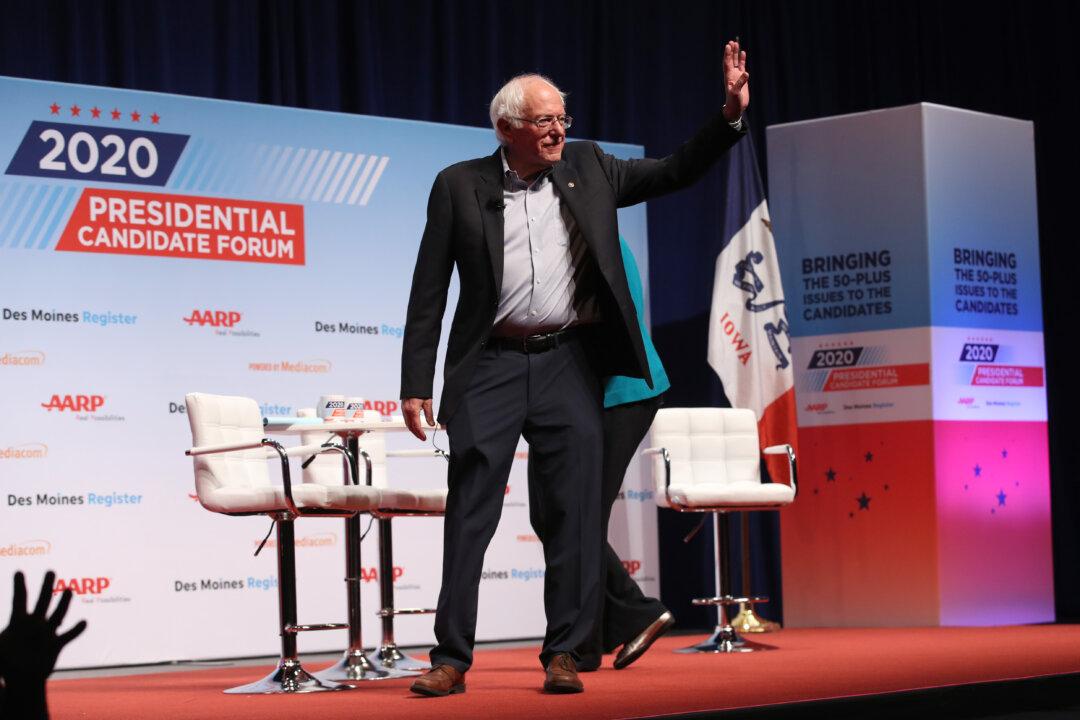Seventeen of the Democratic presidential primary contenders appeared in Iowa last week for candidate forums hosted by the American Association of Retired Persons (AARP), with most of them backing a Medicare for All system that would end private health care insurance, or a public option that would compete with it.
While the organization doesn’t endorse candidates for the White House or Congress, Democrats and liberal advocacy groups are far and away the choice of more than 330 individuals who listed “AARP” in the title of their employer, according to The Epoch Times’ analysis of Federal Election Commission data for the 2016 and 2018 election cycles.





